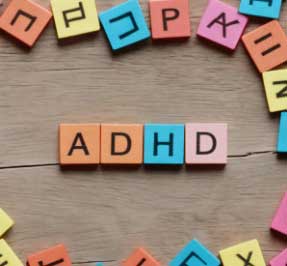 Whether you suffer from clinical depression or just experience the occasional day where you feel down, getting moving is a critical component to feeling better. Why? Because exercise releases key chemicals from your body’s built-in pharmacy that fight depression. These chemicals, endorphins, serotonin, and dopamine are nature’s feel good high. Getting your blood pumping has been shown to activate the same neural pathways as morphine; without any of the negative side effects that can accompany the benefits of the laboratory created chemical cousins of your body’s natural anti-depressants.
Whether you suffer from clinical depression or just experience the occasional day where you feel down, getting moving is a critical component to feeling better. Why? Because exercise releases key chemicals from your body’s built-in pharmacy that fight depression. These chemicals, endorphins, serotonin, and dopamine are nature’s feel good high. Getting your blood pumping has been shown to activate the same neural pathways as morphine; without any of the negative side effects that can accompany the benefits of the laboratory created chemical cousins of your body’s natural anti-depressants.
In 1999, a study published in the Archives of Internal Medicine showed that people with clinical depression that used a combination of anti-depressants and exercise not only recovered from clinical depression faster than those relying only on anti-depressants, after six months, the individuals who continued their exercise regimes were considerably less likely to experience a relapse into depression. Furthermore, people with clinical depression that don’t respond to anti-depressants sometimes get the relief they’re seeking from exercise alone.
Another significant study on the effects of exercise on clinical depression was  reported by Harvard University in 2005, outlining specific guidelines for how much cardio exercise was necessary to effectively eradicate or significantly reduce clinical depression. Individuals experiencing mild to moderate depression experienced relief of symptoms when they walked at a brisk pace for 35 minutes a day for five days a week, or 60 minutes a day for three days a week. These calculations were based upon people weighing approximately 150 pounds, and it is important to note that people weighing less may require less time, and those weighing more will likely require more time to see the same results. If you start a cardio routine and find that you’re not experiencing a relief in depression symptoms, incrementally increasing your time might do the trick.
reported by Harvard University in 2005, outlining specific guidelines for how much cardio exercise was necessary to effectively eradicate or significantly reduce clinical depression. Individuals experiencing mild to moderate depression experienced relief of symptoms when they walked at a brisk pace for 35 minutes a day for five days a week, or 60 minutes a day for three days a week. These calculations were based upon people weighing approximately 150 pounds, and it is important to note that people weighing less may require less time, and those weighing more will likely require more time to see the same results. If you start a cardio routine and find that you’re not experiencing a relief in depression symptoms, incrementally increasing your time might do the trick.
The same study noted in the paragraph above also showed that while brisk walking was an effective treatment for depression, other exercises, including stretching, were shown to be less effective. More research is needed in this area, as many yoga practitioners report significant improvements in their mood with regular practice. In the meantime, getting the recommended amount of cardiovascular exercise and supplementing your regime with a yoga practice may well provide the most emotional benefit, and even if it doesn’t, it will cause no harm and will be of physical benefit.
If you currently take anti-depressants and decide to discontinue use to see if exercise will be an adequate replacement, be sure to discuss it with your health care provider before you begin. With some medications you will need to wean down at a specified rate in order to stop them safely. If you’re in therapy, it is also important to let your therapist know that you’re switching regimes so that any improvements or setbacks can be noted and monitored for optimum safety and well-being.
Devon is a Certified Personal Trainer, Licensed Mental Health/Substance Abuse Counselor and a nationally certified teacher. As a Personal Trainer, she focuses on incorporating whole body wellness through nutrition, movement, and stretching, including off-site activities. She is committed to helping people be their highest selves in all areas: body, mind, and spirit. Her expertise, enthusiasm, energy and educational background serve to create a unique blend of services and techniques employed to help you reach your goals. For training, coaching, or counseling sessions, please contact her at 505.469.0779 or he***************@***il.com.



